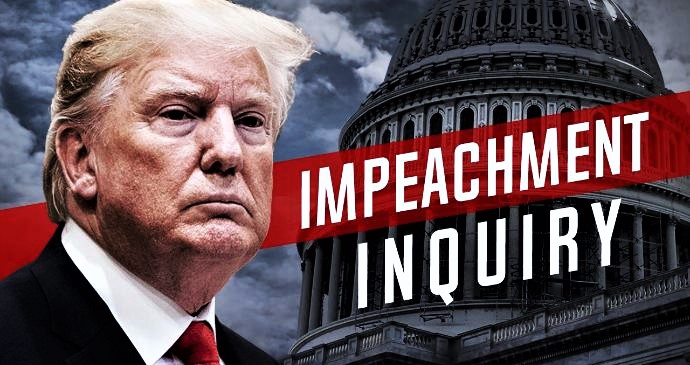A White House national security official who is a decorated Iraq war veteran plans to tell House impeachment investigators on Tuesday that he heard President Trump appeal to Ukraine’s president to investigate one of his leading political rivals, a request the aide considered so damaging to American interests that he reported it to a superior.
Lt. Col. Alexander S. Vindman of the Army, the top Ukraine expert on the National Security Council, twice registered internal objections about how Trump and his inner circle were treating Ukraine, out of what he called a “sense of duty,” he plans to tell the inquiry.
He will be the first White House official to testify who listened in on the July 25 telephone call between Trump and President Volodymyr Zelensky of Ukraine that is at the center of the impeachment inquiry, in which Trump asked Zelensky to investigate former Vice President Joe Biden.
“I did not think it was proper to demand that a foreign government investigate a U.S. citizen, and I was worried about the implications for the U.S. government’s support of Ukraine,” Colonel Vindman said in his statement. “I realized that if Ukraine pursued an investigation into the Bidens and Burisma it would likely be interpreted as a partisan play which would undoubtedly result in Ukraine losing the bipartisan support it has thus far maintained.”
“This would all undermine U.S. national security,” Colonel Vindman added, referring to Trump’s comments in the call.
Read Vindman Opening Statement
The colonel, a Ukrainian-American immigrant who received a Purple Heart after being wounded in Iraq by a roadside bomb and whose statement is full of references to duty and patriotism, could be a more difficult witness to dismiss than his civilian counterparts.
“I am a patriot,” Colonel Vindman plans to tell the investigators, “and it is my sacred duty and honor to advance and defend our country irrespective of party or politics.”
He was to be interviewed privately on Tuesday by the House Intelligence, Foreign Affairs and Oversight and Reform Committees, in defiance of a White House edict not to cooperate with the impeachment inquiry.
In his testimony, Colonel Vindman plans to say that he is not the whistle-blower who initially reported MTrump’s pressure campaign on Ukraine.
But he will provide an account that corroborates and fleshes out crucial elements in that complaint, which prompted Democrats to open their impeachment investigation.
“I did convey certain concerns internally to national security officials in accordance with my decades of experience and training, sense of duty, and obligation to operate within the chain of command,” he plans to say.
He will testify that he watched with alarm as “outside influencers” began pushing a “false narrative” about Ukraine that was counter to the consensus view of American national security officials, and harmful to United States interests.
Colonel Vindman was concerned as he discovered that Rudy Giuliani, the president’s personal lawyer, was leading an effort to prod Kiev to investigate Biden’s son, and to discredit efforts to investigate Trump’s former campaign chairman, Paul Manafort, and his business dealings in Ukraine.
His account strongly suggests that he may have been among the aides the whistle-blower referred to in his complaint when he wrote that White House officials had recounted the conversation between Trump and Zelensky to him, and “were deeply disturbed by what had transpired in the phone call.”
He will also testify that he confronted Gordon Sondland, the United States ambassador to the European Union, the day the envoy spoke in a White House meeting with Ukrainian officials about “Ukraine delivering specific investigations in order to secure the meeting with the president.”
Even as he expressed alarm about the pressure campaign, the colonel and other officials worked to keep the United States relationship with Ukraine on track.
At the direction of his superiors at the National Security Council, including John Bolton, then the national security adviser, Colonel Vindman drafted a memorandum in mid-August that sought to restart security aid that was being withheld from Ukraine, but Trump refused to sign it.
And he drafted a letter in May congratulating Zelensky on his inauguration, but Trump did not sign that either, according to the documents.
Colonel Vindman was concerned after he learned that the White House budget office had taken the unusual step of withholding the $391 million package of security assistance for Ukraine that had been approved by Congress.
At least one previous witness has testified that Trump directed that the aid be frozen until he could secure a commitment from Zelensky to announce an investigation of the Bidens.
While Colonel Vindman’s concerns were shared by a number of other officials, some of whom have already testified, he was in a unique position.
